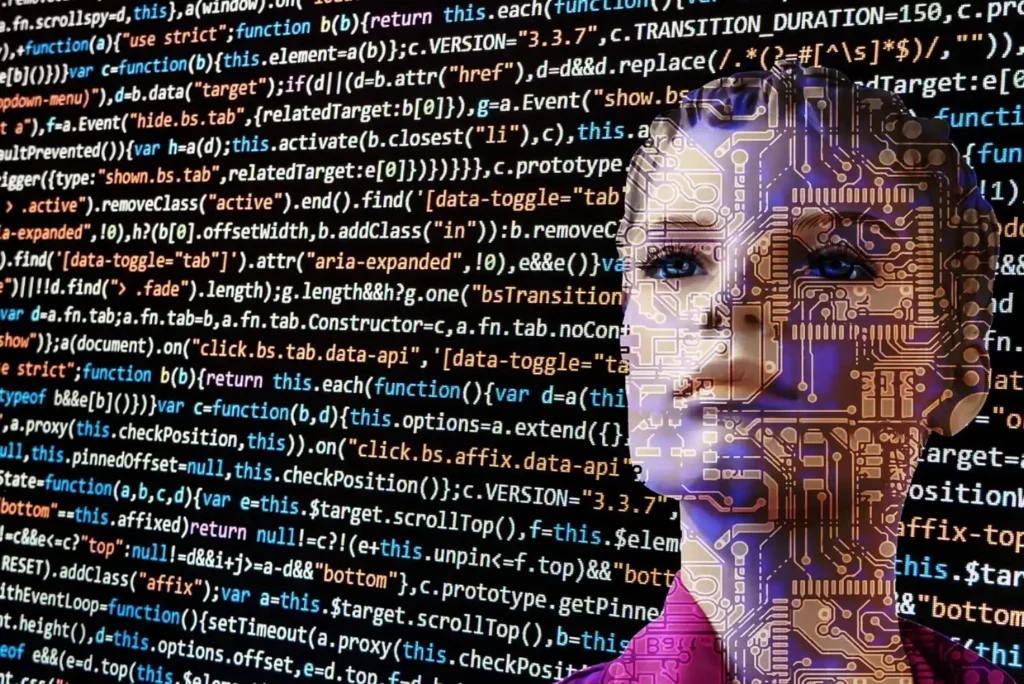
In an era where technological advancements are continually reshaping the contours of our lives, Artificial Intelligence (AI) has emerged as a true game-changer. While many laud the limitless possibilities it brings, concerns about its misuse often overshadow discussions about its ethical applications. Far from being an omnipotent, menacing force, AI can be a catalyst for good when applied judiciously in various sectors such as business, education, and career development.

Business: Beyond Profit to Ethical Decision-Making
The corporate world often faces criticism for prioritizing profits at the expense of ethical considerations. However, AI has the potential to revolutionize this narrative by augmenting ethical decision-making processes. For instance, AI algorithms can analyze enormous datasets to evaluate the efficiency of certain business operations. These insights can guide companies to adopt sustainable practices, not just as a corporate social responsibility checklist item but as a core business strategy.
AI-driven ethics audits can also track a company's adherence to laws and regulations, ensuring compliance isn't merely a box to tick but a culture to imbue. By automating the laborious parts of ethical oversight, businesses free up human capital to focus on strategy and innovation within an ethically sound framework.
Education: Personalized Learning with Integrity
When we consider AI's role in education, fears of robotic teachers replacing human educators often surface. Yet, the true promise of AI in education lies in its capacity to democratize access and personalize instruction, all while maintaining the integrity of educational outcomes.
AI algorithms can assess students' learning styles, strengths, and weaknesses, tailoring lessons to match their individual needs. This personalization can level the academic playing field, especially for students in underprivileged communities. When used responsibly, AI can also play a pivotal role in identifying academic dishonesty, making automated assessments more credible and fair.
Moreover, AI can be deployed in school administration to transparently allocate resources based on need, ensuring equitable education. For example, machine learning models can analyze years of academic performance, attendance records, and socio-economic indicators to make recommendations for resource allocation that are both just and impactful.
Finally, an AI detector helps to automatically identify instances of plagiarism or cheating in digital assessments. This would enhance the integrity of online education by ensuring that students are rightfully earning their grades.

Career Development: Navigating Professional Growth Ethically
AI's utility is also evident in the realm of career development. Algorithms can predict industry trends and required skill sets, allowing professionals to adapt and evolve. AI can even analyze the ethical landscape of various professions, offering recommendations for careers that align with an individual’s values and moral beliefs.
The use of AI for unbiased recruitment is another promising avenue. Traditional hiring processes are often marred by unconscious biases that negatively affect diversity and inclusion. AI tools can assess candidates purely on their qualifications and potential, reducing the scope for prejudice and enabling a more diversified workforce.
Furthermore, continuous professional development is a challenge in fast-paced work environments. AI can assist here by tracking performance metrics and suggesting customized training programs. These suggestions are not solely based on improving productivity but can also incorporate ethical training modules to nurture corporate citizens who are proficient and principled.
Personal Development: The Tech-Savvy Moral Compass
Lastly, AI's role is not restricted to corporations, educational institutions, or professional pathways alone. There is an increasing wave of AI applications aimed at personal development. Whether it's maintaining mental well-being, making socially responsible investment choices, or reducing one’s carbon footprint, AI tools provide data-driven insights to make ethical life choices.
For instance, AI-driven apps can analyze your spending habits and suggest how to allocate a portion of your earnings to philanthropic activities or ethical investment portfolios. Such integration of technology into everyday decision-making emphasizes that ethics and progress are not mutually exclusive but can be symbiotically related.

Conclusion
The specter of AI misuse should not deter us from exploring its immense potential for ethical betterment in business, education, career development, and personal growth. By setting up adequate regulations, encouraging responsible usage, and fostering a culture of ethical tech adoption, we can look forward to a future where AI serves not as a cautionary tale but as a transformative force for good. Let’s not allow fear to blind us to AI's ethical possibilities; instead, let us harness this potent technology to build a more equitable and ethical world.

